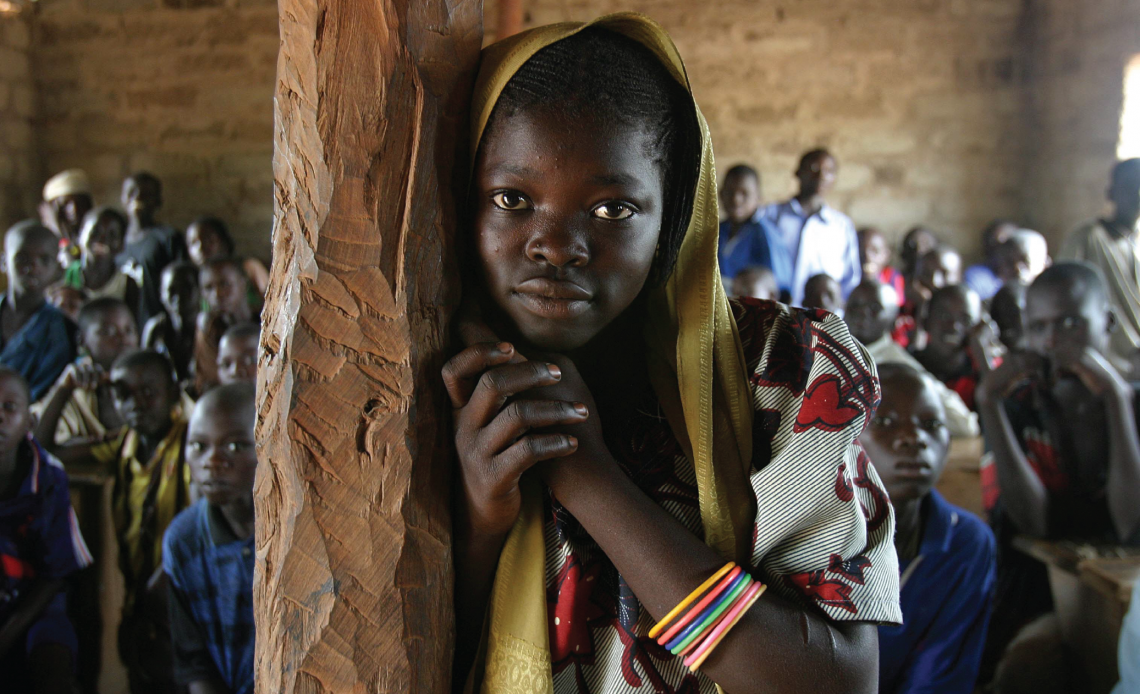Precious Ajayi (Lead writer)
In Nigeria, women and girls make up 49.7% of the population. This means that nearly half of the country’s future lies in their hands. Women have controlled food production, and trade networks, and some have held influential positions such as the Yoruba Iyalode, advisors to their communities on political and economic matters with significant influence in state economies and community leadership.

Today, Nigerian women continue to play vital roles across all facets of national life, as entrepreneurs, professionals, and community leaders. They drive a substantial part of the economy, with women running 41% of micro-businesses, and over 23 million women entrepreneurs contributing to the national Gross Domestic Product (GDP).
Despite their important role in society, women and girls continue to face significant barriers. Harmful practices and gender-based violence (GBV) continue to endanger millions of girls. About 44% of girls are married before 18, the legal age of consent, totalling over 24 million child brides, the third-highest number globally, with the highest concentration in the Northwest and Northeast due to poverty, insecurity, and cultural norms.
This denies many girls education and exposes them to early childbirth, abuse, and exploitation. Female Genital Mutilation (FGM) remains widespread, affecting nearly 20 million women and girls, including over 8 million aged 0 to 14. Meanwhile, GBV is pervasive, three in ten girls experience physical violence by age 15, and every 10 minutes, a woman or girl is killed.
In terms of healthcare, Nigeria has the highest maternal mortality rate (MMR) with 993 deaths per 100,000 live births. These staggering figures reflect weak health systems, poverty, and conflict. These realities make Nigeria one of the most dangerous places to be a woman or girl.
Every year on October 11, the global community observes International Day of the Girl Child, a day to spotlight girls’ rights, elevate their voices, and push for action that empowers them. It draws attention to the unique challenges girls face while championing policies that unlock their potential.
This year’s theme, “The girl I am, the change I lead” celebrates how girls are stepping up, organising in their communities, demanding justice, and driving change even during economic downturn, disasters and conflict.

Girls on the frontlines of crisis,
In Nigeria, women and girls are advocating for change. Habiba Mohammed an education champion with Malala Fund is also co-director at the Centre for Girls’ Education (CGE). She runs safe space clubs in rural Kaduna, which has impacted more than 200,000 vulnerable girls with life skills, education, vocational training and health services. Since 2016, Over 6,000 married adolescent girls have benefited from the opportunity to write their senior secondary school examinations, renewing their chances for formal or informal employment.
Oluwaseun Ayodeji Osowobi, founder of Stand to End Rape Initiative, turned her survival of sexual violence during her National Youth Service Year (NYSC) into advocacy, mobilising nationwide protests where governors declared a state of emergency on GBV in 2020.
Maryam Ahmed, a Save the Children Girl Champion from Kano, mentors girls, advocates for girls’ education and an end to child marriage. She has led Chibok Girls Ambassadors initiative, participated in leadership and reproductive health dialogues, and inspires peers with her poetry and leadership workshops.
Olaoluwa Abagun, the founder of Girl Pride Circle, has reached over 1,700 adolescent girls across Southwest Nigeria through grassroots workshops, education clubs, and advocacy, on leadership and sexual and reproductive health and rights. She has also mobilised 270 girls to draft a “Community Action Plan for the Prevention of Sexual Violence” in Lagos’s Alimosho area, which has been adopted by local authorities.
To truly honour the International Day of the Girl, Nigeria must turn words into action through:
Strengthening and enforcing the Violence Against Persons Prohibition (VAPP) Act: Nigeria must strengthen and enforce the VAPP Act across all 36 states by funding shelters, Sexual Assault Referral Centres (SARCs), and raising awareness on the VAPP Act in local languages. All 36 states should adopt and implement it, increase the legal age of marriage to 18, and ban FGM once and for all, while ensuring strict prosecution of offenders. Special gender courts and registries can boost justice for survivors. Drawing Lessons from Gambia’s Anti-FGM Success, we see that strong legal protections, consistent parliamentary support, and community engagement are critical in upholding laws like VAPP.
Improve access to education: Nigeria must expand access to free, quality schools, recruit female teachers, and provide scholarships or stipends. Nigeria should adopt a programmatic approach, like flexible classes and a school transport programme, link in India’s Bihar state. The “Cycle Programme” provided bicycles to girls, reducing the time and difficulty of commuting to school and helping to increase attendance rates by overcoming the barriers caused by distance. Improving facilities such as classrooms, safe water and sanitation, and furniture, while also engaging parents and community leaders to boost attendance. At the same time, implementing poverty-reduction measures like cash transfers, scholarships, and livelihood support for the poorest households can help strengthen their agency.
Enhance health services: Nigeria must reduce its maternal and child mortality rate by expanding health coverage, such as delivery and postnatal care with skilled workers, and ensuring access to contraception in rural and hard-to-reach communities. To reach remote and underserved areas, mobile clinics and community health workers are vital. Efforts like the MAMII initiative, targeting 172 LGAs that account for 55% of the country’s maternal deaths, echo the need to combine community programming, facility readiness, and access interventions.
Community Engagement and Advocacy: Public campaigns through radio, TV, and local influencers to highlight girls’ value and the harms of child marriage and FGM. Engaging chiefs, imams, and pastors as champions is vital, while involving men, boys, schools, and workplaces in gender-sensitisation fosters equality and respect.

The Nigeria’s girl is the backbone of the country’s future. At the end of the day, investing in Nigeria’s girls is investing in our future. On this International Day of the Girl Child, let us move beyond words and take bold steps to truly put the girl child first.


